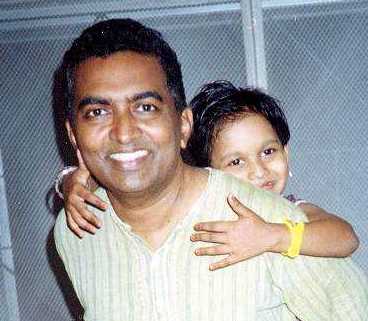Teaching and Learning Covenants
Dr. K. Sankaran
A. What is Learning?
1. Learning is a human need and the most exciting of all human activities. You only have to watch children grow up to know what this statement means. Seeking, exploring, discovering are in themselves transformative.
2. Teacher and students are alike in that they are both learners who have come together with some defined roles.
3. In this sense, learning is the responsibility of the learners. The most powerful and enduring lessons are taught not by instructors, but Self as Nature. In this sense, learning is “available” to everyone anytime. Learning is a continuous process of seeking, exploring and discovering – a process which, inside the classroom and outside it, is nurtured by the instructor.
B. Self as Nature
1. Self as Nature has a deep meaning. It is a state to be experienced. Roughly it means oneself to be in tune with nature while at the same time being in a state of highest human aspiration.
2. A genuine instructor is a product of Self as Nature, chiseled by previous instructors.
3. Instructor provides a field for his or her students conducive to self-development and discovery.
4. The responsibility of the instructor is elevating everyone in the class to a level of greater understanding, greater sensitivity, greater reflection and greater effectiveness to live life fully and contribute to their own contexts (family, society, job, profession, organization they would be working for, country or humanity).
C. Instructor and Learner
1. The words “Instructor” and “Learner” designate roles.
2. That person in the role of an instructor is likely to be only marginally more knowledgeable than those in that of learners.
3. Just as learners learn from the instructor, the instructor also learns from learners.
4. The best knowledge has already been said. That does not mean that there are limits to our own knowledge.
D. Moments of Discovery
1. Learning consists of allowing for Moments of Discovery (of self, of colleagues, of instructor, of author, of the material… of everyone and everything participating in the teaching-learning process). A series of Moments of Discovery add up to demonstrable, measurable knowledge (in the context of classroom expectations) besides developing a healthy positive attitude.
2. Moments of Discovery happen not only individually, but also collectively.
E. Grades and Exams
1. Grades may not reflect the actual capacity or competence of the learners.
2. Grades measure the ability of learners to place answers cleverly within the context of exams and other “points of evaluation”.
3. An instructor tries to match up the actual capacity and competence of learners with the evaluation tools and procedures available to her or him. However much an instructor tries there are limitations to grading systems because they are, by nature, judgmental.
4. Whatever the demerits of grading systems, they are still indispensable. So are avenues for testing; exams, quizzes and so on.
F. Dialogue in the Class
1. Questions that clarify issues for oneself are the best questions. These questions emerge from thinking through and reflecting upon problems and opportunities.
2. A good question presupposes some amount of previous thinking through.
3. Without sufficient thinking questions would be simply be questions that emerge from others’ doubts.
4. Even such questions that emerge from others’ doubts are not necessarily unhelpful. They may contribute to collective learning.
5. But these cannot substitute “own” questions.
G. Application of Knowledge
1. Ultimately all knowledge would be applied to a purpose: better knowledge would ultimately lead to a happier, happier others etc. In the context of management education, it may also increase efficiency of a group of employees, allow for more effective better organization of people etc.
2. It is always useful to keep what purpose(s) is being served by the knowledge gained in the class. This will keep the learning process focused.
3. One of the characteristics of true knowledge acquisition is do this with the awareness of having to serve different purposes simultaneously. For instance, efficiency plus environmental friendliness, customer plus shareholder plus other stakeholder, employee orientation plus effectiveness etc.
4. The more pluses (as above) you see create, the better it would be for yourself and others.
5. When one is clear about the purpose, application of knowledge to practical situations becomes effortless. A new flexibility in your ability to apply knowledge emerges.
H. We are Standing on the Shoulder of Giants
1. As stated earlier, greatest knowledge has already been stated. Any thought otherwise on the part of instructor or student is hubris.
2. This does not mean there isn’t something called plagiarism. Plagiarism is parading someone else’s tangible/ expressed work as if it’s one’s own.
3. Giving references is a pleasurable and noble act, because in that act one is finding and acknowledging kindred souls. After all we are all social beings! Knowledge realm is not solitary. It also has a social angle.
I. Attendance in the Class has many Ramifications
1. One obvious reason for students to regularly attend classes to is gain knowledge in the specific domain that the course deals with. But there other reasons.
2. Those who do not attend classes may do disservice to the rest of the class by creating “breaks” in the class. The group has to go back time and again to what has already been discussed. Not attending classes is a subtle, but damaging sort of disruption.
3. Further, the best learning occurs not only because of books and ‘static’ media of knowledge, but because of the dynamic interaction that takes place in the class with fellow students and instructor.
4. It is not difficult to see that the same ideas apply to coming late in the class.
Subscribe to:
Comments (Atom)

